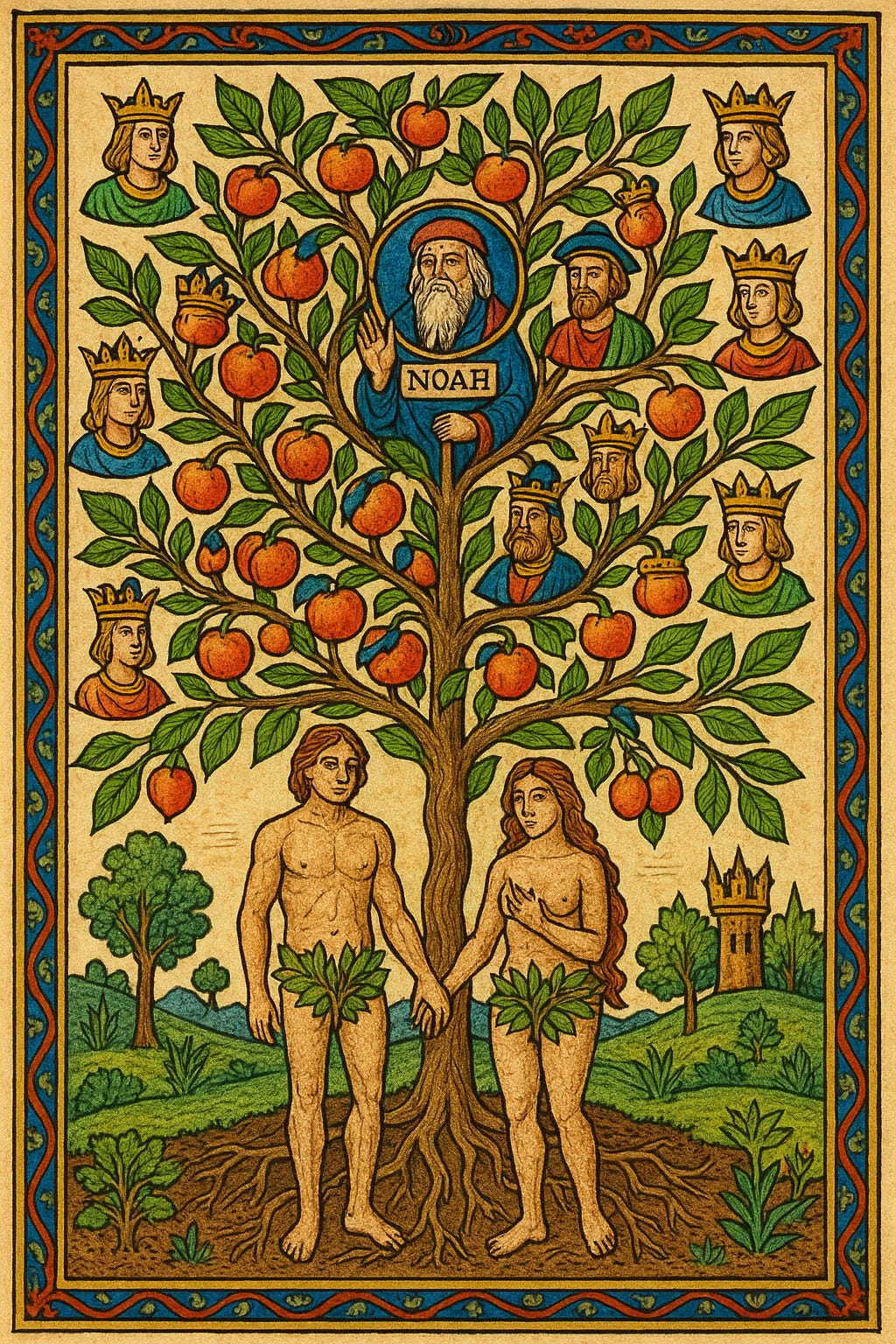Does Matthew 28:19 Trump Genesis 1:28 When it Comes to Making New Christians?
There is no statute of limitations on Genesis 1:28.
“And God blessed them. And God said to them, ‘Be fruitful and multiply and fill the earth and subdue it, and have dominion over the fish of the sea and over the birds of the heavens and over every living thing that moves on the earth.’” Genesis 1:28 ESV
God spoke these words to Adam and Eve. This divine command appears elsewhere in Genesis.
Genesis 1:22 had been pronounced to sea creatures and birds on the fifth day: “And God blessed them, saying, ‘Be fruitful and multiply and fill the waters in the seas, and let birds multiply on the earth.’” God spoke to Noah regarding the animals as the flood subsides: “Bring out with you every living thing that is with you of all flesh—birds and animals and every creeping thing that creeps on the earth—that they may swarm on the earth, and be fruitful and multiply on the earth.”
Genesis 1:28 was echoed to humans later in the book of Genesis. In Genesis 9, Noah and his sons are addressed twice with similar language after the flood. “And God blessed Noah and his sons and said to them, ‘Be fruitful and multiply and fill the earth’” (Genesis 9:1). “And you, be fruitful and multiply, increase greatly on the earth and multiply in it” (Genesis 9:7).
Jacob hears a similar promise in Genesis 35:11: “And God said to him, ‘I am God Almighty: be fruitful and multiply. A nation and a company of nations shall come from you, and kings shall come from your own body.’” And that’s not all. Genesis 17:6, 17:20, 28:3, and 48:4 use similar phrasing, too.
But what if someone were to say that these verses of divine command (and accompanying blessing) no longer apply today, merely old words for a world rendered outdated by Christ’s atonement for our sins? Don’t be surprised. Lutherans have heard such silliness before. Consider what our Lutheran Confessions have to say on the matter.
God created human beings for procreation (Genesis 1:28).
AC: II, art. xxiii, par. 5
Marriage was not first instituted in the New Testament, but in the beginning, immediately after the creation of the human race [Genesis 1:28]. Furthermore, it has God’s command. It has also promises, not truly having to do with the New Testament, but rather having to do with bodily life.
Ap: art. xiii, par. 14
7 First, Genesis 1:28 teaches that people were created to be fruitful, and that one sex should desire the other in a proper way. We are not speaking about lustful desire, which is sin, but about that appetite that was in nature in its perfection. They call this physical love. This love of one sex for the other is truly a divine ordinance. But since this ordinance of God cannot be removed without an extraordinary work of God, it makes sense that statutes or vows cannot remove the right to contract marriage.
8 The adversaries object to these arguments. They say that in the beginning, the commandment was given to populate the earth. Now that the earth has been populated, marriage is not commanded. See how wisely they judge! Human nature is so formed by God’s Word that it is fruitful not only in the beginning of creation, but as long as this nature of our bodies exists. Humanity is fruitful just as the earth becomes fruitful by the Word, “Let the earth sprout vegetation, plants yielding seed” (Genesis 1:11). Because of this ordinance, the earth not only started to produce plants in the beginning, but as long as this natural order exists, the fields are covered every year. Therefore, just as human laws cannot change the nature of the earth, so, without God’s special work, neither vows nor a human law can change a human being’s nature.
9 Second, because this creation, or divine ordinance, in humanity is a natural right, jurists have said wisely and correctly that the union of male and female belongs to natural right. Natural right is unchangeable. Therefore, the right to contract marriage must always remain. Where nature does not change, that ordinance which God gave nature does not change. It cannot be removed by human laws. 10 Therefore, it is ridiculous for the adversaries to babble that marriage was commanded in the beginning, but is not now. This is the same as if they would say, “Formerly, when people were born, they were born with gender; now they are not. Formerly, when they were born, they brought with them natural right; now they do not.” No craftsman (Faber) could produce anything more crafty than these foolish things. They were created to dodge a natural right. 11 Therefore, let this point remain, that both Scripture teaches and the jurist says wisely: the union of male and female belongs to natural right. 12 Furthermore, a natural right is truly a divine right because it is an ordinance divinely imprinted on nature. Because this right cannot be changed without an extraordinary work of God, the right to contract marriage remains, the natural desire of one sex for the other sex is an ordinance of God in nature, and for this reason is a right. Otherwise, why would both sexes have been created? 13 As it has been said before, we are not speaking of lustful desires, which is sin, but of that desire called physical love. Lustful desire has not removed this physical love from nature, but inflames it, so that now physical love has greater need of a cure. Marriage is necessary not only for the sake of procreation, but also as a cure. These things are clear and so well established that they cannot be disputed.
Ap: art. xxiii, par. 7–Ap: art. xxiii, par. 13
206 But this commandment is aimed directly at the state of marriage and gives us an opportunity to speak about it. First, understand and mark well how gloriously God honors and praises this estate. For by His commandment He both approves and guards it. He has approved it above in the Fourth Commandment, “Honor your father and your mother.” But here He has (as we said) hedged it about and protected it. 207 Therefore, He also wishes us to honor it [Hebrews 13:4] and to maintain and govern it as a divine and blessed estate because, in the first place, He has instituted it before all others. He created man and woman separately, as is clear [Genesis 1:27]. This was not for lewdness, but so that they might live together in marriage, be fruitful, bear children, and nourish and train them to honor God [Genesis 1:28; Psalm 128; Proverbs 22:6; Ephesians 6:4].
Large Cat.: Commandments, art. vi, par. 206–Large Cat.: Commandments, art. vi, par. 207
76 As Chrysostom says in his Sermon about the Passion: Christ Himself prepared this table and blesses it. For no man makes the bread and wine set before us into Christ’s body and blood, only Christ Himself, who was crucified for us. The words are spoken by the mouth of the priest. But by God’s power and grace, by the word, where Christ says: “This is My body,” the elements presented are consecrated in the Supper. The declaration “Be fruitful and multiply and fill the earth” [Genesis 1:28] was spoken only once. But it is ever effective in nature, so that it is fruitful and multiplies. So also this declaration ‹,This is My body; this is My blood,› was spoken once. But even to this day and up to His second coming it is effective and works so that in the Supper of the Church His true body and blood are present.
Formula: SD, art. vii, par. 76
This is what the Lutheran Confessions say about Genesis 1:28. This is what we as Lutherans believe, teach, and confess. Chrysostom is convinced that the verse of divine command is “ever effective.” It is never in tension with, or contradictory to, the command of the Great Commission. They proceed together, but when one is neglected, both suffer.
I personally appreciate what the sainted Charlie Kirk had to say: “Having a family will change your life in the best ways, so get married and have kids. You won’t regret it,” God bless him for saying it out loud and on social media.
There is no statute of limitations on “Be fruitful and multiply.”
The burden of proof is on those who object to the “ever effective” nature of this divine command to show a Word of the Lord that shows God changed His mind.
Citations from: McCain, P. T., ed. (2005). Concordia: The Lutheran Confessions. Concordia Publishing House.
(Emphasis added in above quotes)
Rev. Paul Cain is the Senior Pastor of Immanuel Lutheran Church (LCMS), the Headmaster of Immanuel Academy and Martin Luther Grammar School (CCLE), and Wyoming District First Vice President and Board of Directors Chairman.
He is also:
Editor of the Lutheran Book Review,
A Permanent Member of the Board of Directors, Consortium for Classical Lutheran Education,
A Founding Regent of Luther Classical College, and
Rhetoric Teacher, Wittenberg Academy





If anything, it is the reverse, particularly when most modern Christians view Matthew 28:19 as a call for foreign missions.
"...the sainted Charlie Kirk..." ?! Seriously... ? The Zionist did say some worthwhile things, but then even a broken clock is right twice a day.